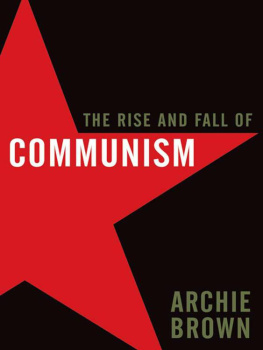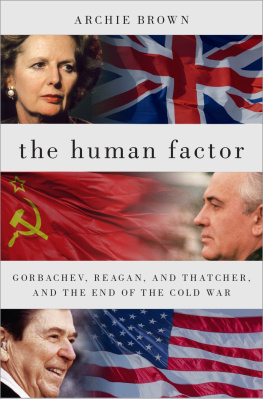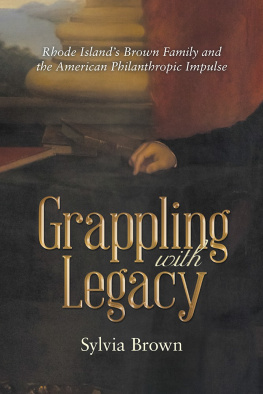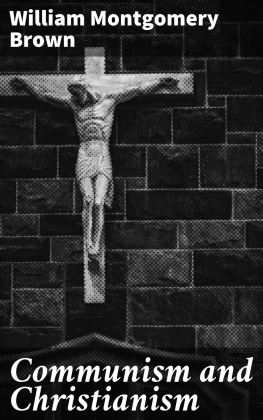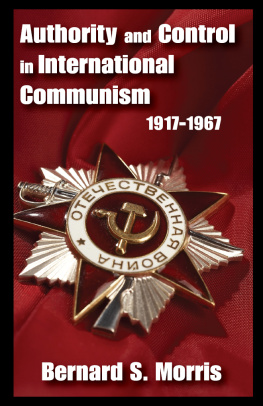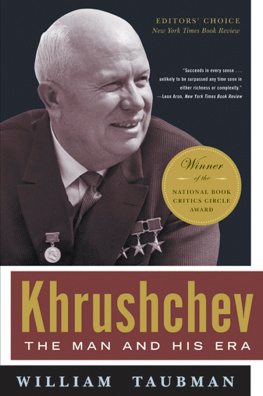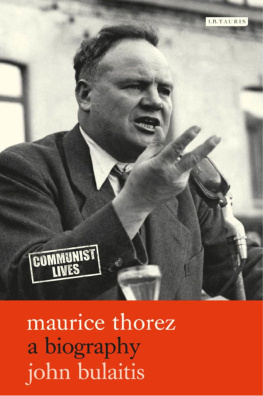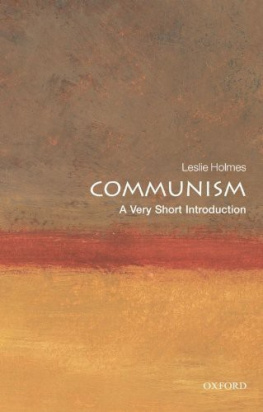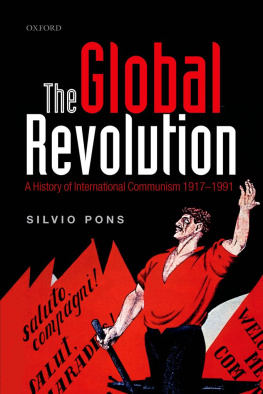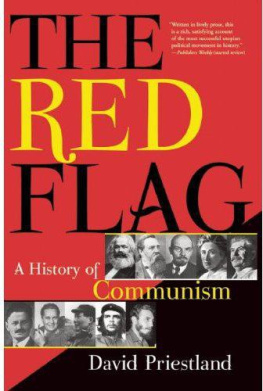The Rise and Fall of Communism
Archie Brown

To
Susan and Alex,
Douglas and Tamara
and
to my grandchildren
Isobel and Martha,
Nikolas and Alina
Contents
Origins and Development
The Idea of Communism
Communism and Socialismthe Early Years
The Russian Revolutions and Civil War
Building Socialism: Russia and the Soviet Union, 191740
International Communism between the Two World Wars
What Do We Mean by a Communist System?
Communism Ascendant
The Appeals of Communism
Communism and the Second World War
The Communist Takeovers in EuropeIndigenous Paths
The Communist Takeovers in EuropeSoviet Impositions
The Communists Take Power in China
Post-War Stalinism and the Break with Yugoslavia
Surviving without Stalin
Khrushchev and the Twentieth Party Congress
Zig-zags on the Road to communism
Revisionism and Revolution in Eastern Europe
Cuba: A Caribbean Communist State
China: From the Hundred Flowers to Cultural Revolution
Communism in Asia and Africa
The Prague Spring
The Era of Stagnation: The Soviet Union under Brezhnev
Pluralizing Pressures
The Challenge from Poland: John Paul II, Lech Walesa, and the Rise of Solidarity
Reform in China: Deng Xiaoping and After
The Challenge of the West
Interpreting the Fall of Communism
Gorbachev, Perestroika, and the Attempt to Reform Communism, 198587
The Dismantling of Soviet Communism, 198889
The End of Communism in Europe
The Break-up of the Soviet State
Why Did Communism Last so Long?
What Caused the Collapse of Communism?
Whats Left of Communism?


There is no completely consistent way of rendering peoples names in a book such as this. In languages with a different alphabet from that used in English, there is more than one transliteration systemfor example, from Russian and from Chinese. In the Russian case, I have used a simplified version of the standard British system, adopted also by a number of North American journals. That means, for example, Trotsky, rather than Trotskiy (or the Library of Congress variant, which would be Trotskii). I have also favoured familiarity in the use of names. Thus, Trotskys first name in Russia was Lev, but he is better known in the outside world as Leon, and that is the form I adopt. I do not use the Russian soft sign in the text. What in strict transliteration would be Zinovev I render, as is more usual in English, Zinoviev. But when citing books or articles (and their authors) in Russian in the endnotes, as distinct from the main body of the book, I do aim to transliterate precisely. When a Russian author has published a book or article in English, I use the spelling of his or her name adopted by that author.
In the case of Chinese names, I have generally used the pinyin system, adopted by most China scholars nowto take the obvious example, Mao Zedong rather than Mao Tse-tung. But here again I have made concessions to familiarity. Since Chiang Kai-shek was dead long before the old Wade-Giles system was abandoned by China specialists, his name appears in that familiar form. For similar reasons I have used Kuomintang, rather than Guomindang. (The former and older rendering of the name of the movement established by Sun Yat-sen in 1919 is still used in Taiwan.)
Names which are written in the English alphabet, but with the addition of diacritical marks, such as, for example, the Slovak Alexander Dubek, or the Hungarian Jnos Kdr, are used in precisely that way in the book. There are, however, people who have become better known in the anglicized version of their namesespecially monarchs such as Tsar Nicholas II of Russia or King Paul of Yugoslaviaand those are the forms I have used. Similarly, there are some Russians with the first name Aleksandr, such as Solzhenitsyn and Yakovlev, whose first name is usually rendered in English as Alexander, and for the sake of familiarity I have followed that practice. Stalins first name is the equivalent of the English-language Joseph. Again, there is no one correct use. Stalin was a Georgian, and a strict transliteration of his name from Georgian would be Ioseb. In Russian it became Iosif. In English it is sometimes rendered as Josif, and that is the form I prefermaking clear that it is the equivalent of Joseph, but not anglicizing it so completely.
The naming of places can be no less problematical than what to call people. The capital city of Ukraine is correctly transliterated from Ukrainian as Kyiv, but in Russia it is called Kiev, and long ago that was the way in which it entered the English language. I have not changed that familiar usage. To those who object, I would point out that Russians are quite relaxed about the fact that we call their capital city Moscow, not Moskva (which it is in Russian). Similarly, we call the Czech capital Prague, rather than Praha which it is in the Czech Republic. And the English, who have been at odds with the French over many matters and many centuries, do not hold it against their near neighbours that they call the English (and British) capital Londres. During most of the Soviet period the pre-revolutionary Russian capital of St Petersburg, renamed Petrograd from 1914 to 1924, was called Leningrad, and it is now St Petersburg (though not the capital) once again. I usually refer to it by its name at the time in question.
A bigger issue is raised by my use of Eastern Europe. Some of the countries which were designated as being in Eastern Europea term in common use, especially after they became Communist stateswere located in central Europe. Thus, Eastern Europe, as distinct from eastern Europe, is more of a political than a geographical designation. That is why I use a capital letter in Eastern. Given that this was a political description, the term became ambiguous and misleading from the moment Communist regimes collapsed in Europe. Its meaning was, however, clear enough under Communism, and it is with that period I am concerned in this volume. The Communist era comes up to the present day in several countries, but none of them are located in Europe.
Communist parties in Eastern Europe had different names at different times, such as the Polish United Workers Party (PUWP). While sometimes using their official designation, I also use the generic term of Communist party when writing about them, employing a lower-case p when that was not the official title. The capital C is used for Communist states and parties. Lower-case communism refers to the stateless society of the future which was supposedly to be the ultimate stage of social development.
Sources cited are listed in the endnotes. The first name as well as surname of an author is given on his or her first mention in the notes to each chapter. Other bibliographical details of a book, article, or archival document are also provided in full on their first mention in the chapter endnotes and abbreviated in the remainder of that chapter.
AgitpropAgitation and Propaganda
ANCAfrican National Congress
apparatapparatus, bureaucracy
apparatchikbureaucrat, full-time official (especially of Communist Party)

